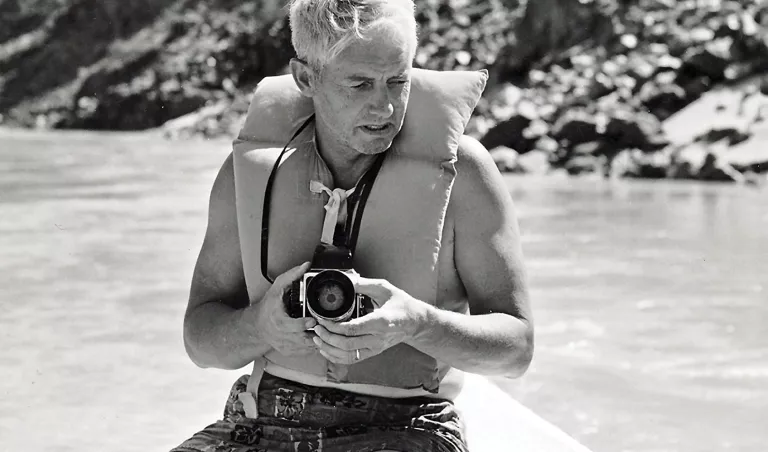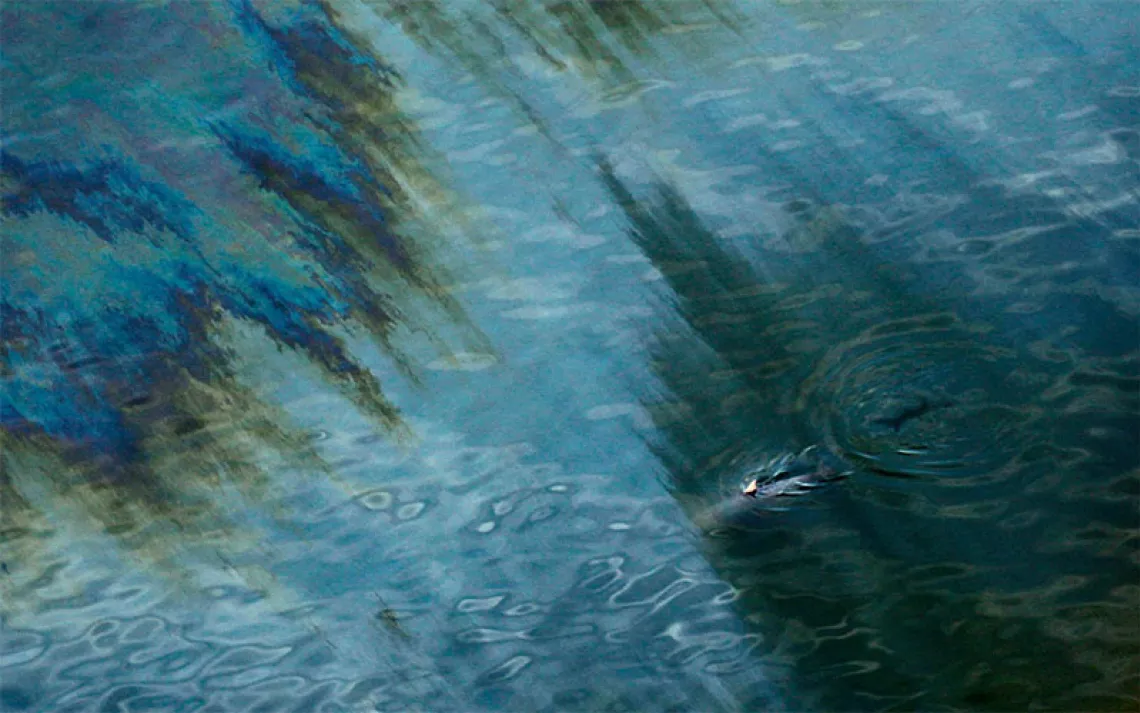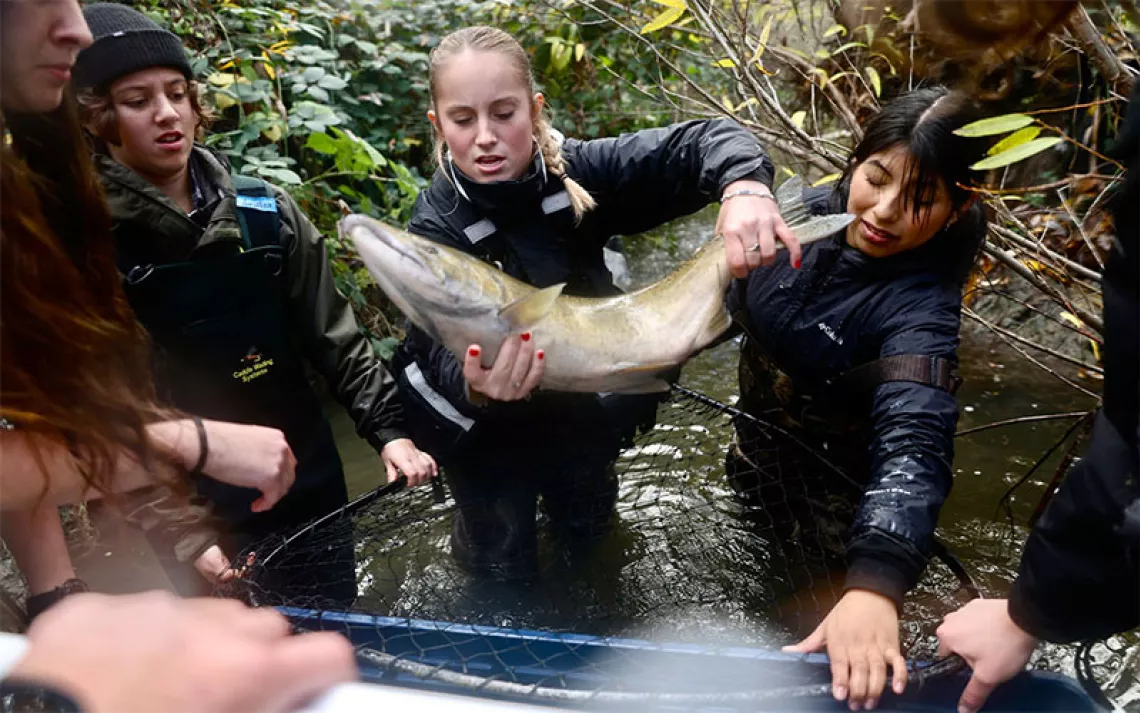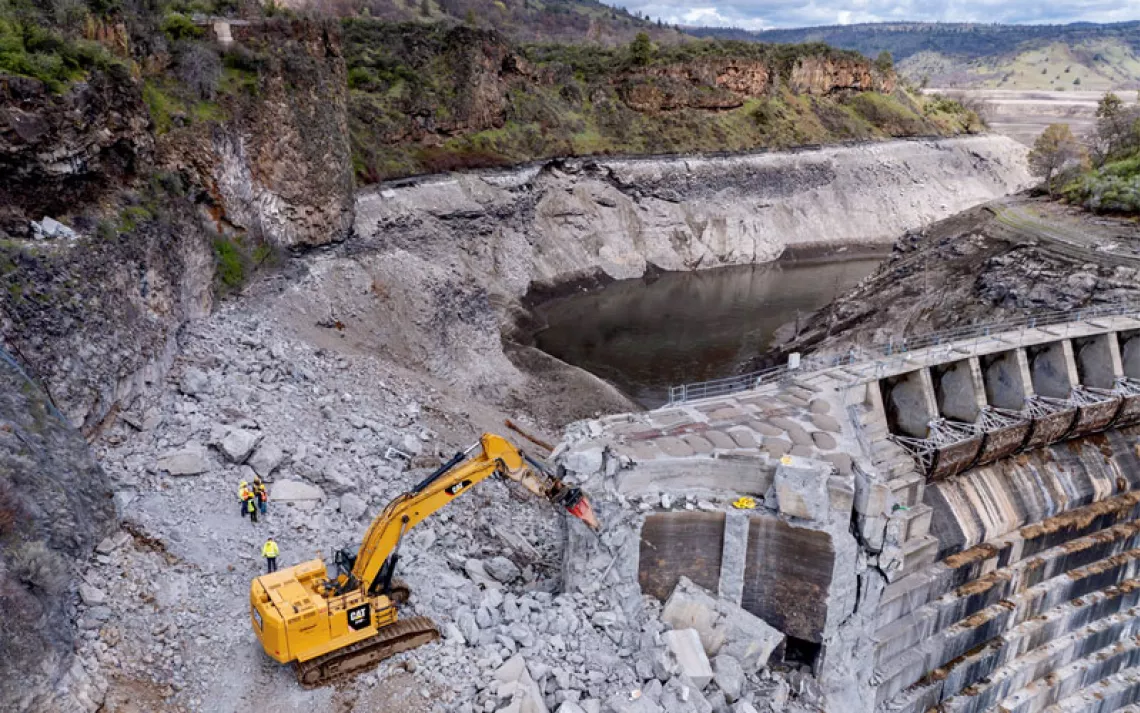Passages: Farewell to the Archdruid
Earth's best friend, David Brower, 1912-2000

By the time I met David Brower, in 1969, he was more indoors than out. He was only 12 years younger than the 20th century, and he had spent a large part of his life escaping interior scenes by getting himself up into the Sierra Nevada and away from confinements of both the natural and the figurative kind. He was shy, and that spurred him, too, to get away. He came to know the mountain country in such detail that it was said he would know exactly where he was if, magically, a hand were to set him down anywhere at all from Sequoia National Forest to the Feather River. He took up technical climbing and achieved the first ascents of 33 Sierra peaks. By his account, he would have liked to choose one and stay there.
When incursions in various forms threatened his Sierra, though, Brower had to come down and fight. He fought in theaters, halls, and chambers, and in a way that Homer would best understand. His voyages through the Sierra Club and Friends of the Earth and Earth Island Institute and other loci for defenders of his faith were punctuated with mutiny, fratricide, and triumph. He was feisty, heaven knew. And arrogant, possibly. And relentless, certainly. And above all, effective-for he began his mission when ecology connoted the root and shoot relationships of communal plants, and he, as much or more than anyone in the midcentury, expanded its reach and inherent power until it became the environmental movement. Others in time would learn more than he knew and advance the argument in a stabilizing way, but they would always be following him.
I spent a year with him going from halls to chambers and from city to city, East and West. Blessedly, it was a year of rivers and redwoods and mountains, too. Among scenes and anecdotes that are now reassembling and crowding the mind, one minor and peripheral moment somehow lingers at the center. We were crossing the Mojave Desert. Not on foot. And after an hour or two of the Mojave, Dave Brower remarked that in the give and take of environmental politics-in the long wrestle with opposing forces lined up on countless vectors-he would be willing, if necessary, in the name of diplomacy and compromise, to surrender the Mojave.
I asked him if he would enumerate terrains of his choosing that might be put in the same category. Sitting beside him, his wife-his gyroscope Anne-seemed to smile. His son Ken, hitherto somnolent in the backseat, sat up and said, "It's going to be a short list!"
It was something shorter than that, for Brower looked around a little more at the Mojave, and changed his mind.
 The Magazine of The Sierra Club
The Magazine of The Sierra Club



